Recently arrived envoy talks to Maxmilian Wechsler about being responsible for four countries, her last posting in the US and why she became an expert in political Islam, radicalization and counter-terrorism
| THE embassy office of Her Excellency Kirsti Westphalen, Ambassador of Finland to Thailand, enjoys spectacular views of Bangkok. Located on the 16th floor of the Amarin Tower on Ploenchit Road, it overlooks the central shopping district, and is neither too high nor too low. Mrs Westphalen, who just took up her post in September, said the bird’s-eye perspective from her workplace gives her a lot of inspiration. “Yes, I have a nice view of Bangkok from my office window, including CentralWorld.” Mrs Westphalen enjoys being close to the action around Ratchaprasong intersection, with views of the Grand Hyatt Erawan and other hotels, offices and residential towers in the vicinity. “Especially with all the wonderful lights in the evening, I really like it here,” she said, looking out from her large window as if she had just entered the office for the first time. |
Mrs Westphalen is one of eleven female ambassadors now residing in the kingdom. “We keep in close contact with each other, but it would be nice if there were more women in the diplomatic community here. Around 50 per cent of Finnish ambassadors abroad are women. On the whole, the diplomatic community in Thailand is very active, made up of wonderful colleagues who are helpful to one another.”
Asked why ambassadors posted in Thailand are generally among the most experienced diplomats of their respective countries, she said: “Thailand is an important country in a very strategic location. For decades the economic development in greater Asia, looking at India, China and the Asian ‘tigers,’ has been very impressive. In recent years there has been modest economic growth in Europe and America. The world is looking towards Asia where both the big countries and the smaller ones have great potential.”
The ambassador says she was born “a long time ago” in the capital of Finland, Helsinki. “My mother taught English in high school and my father, who I unfortunately lost at a very young age, was an economist who negotiated international trade deals. I am sure this helped inspire me to do something international as well,” said Mrs Westphalen, who has a Master of Arts degree from the University of Helsinki in International Politics and an MA from Durham University in Middle Eastern Studies.
“I studied political science and international law at the University of Helsinki, and then at a mature age I had the opportunity to study for a postgraduate degree at Durham University in northern England, where they have an excellent department for the politics of the Middle East. I specialize in political Islam, radicalization and counter-terrorism.
“My husband is a Moroccan journalist who took early retirement. He was the editor-in-chief and TV anchor for the Moroccan TV news. He knows all about deadlines,” she said with a broad smile.
Mrs Westphalen speaks five languages fluently: Finnish, English, French, Swedish and German, although she confessed to being a little rusty in the latter. “At home, we used to speak French but now we speak English. We have ‘invented’ our own language – a mixture of French and English.”
What about Thai? The ambassador answered with a hint of regret that this is “a big plan that has not been realized as yet.” She named her hobbies as “reading, movies, travel and sports;” but it’s certain that her duties here keep her busy. She is also ambassador to Laos, Cambodia and Myanmar.
Mrs Westphalen is a career diplomat who always knew what she wanted to do. “Since I was a youngster, international affairs have been my hobby and this is what I studied. After some work with NGOs, I was fortunate enough to be accepted to the Ministry of Foreign Affairs in 1981.
“Before taking the post in Thailand, I served from 2008 to 2013 as Consul-General of Finland in Los Angeles in the US and acted as the Dean of the Los Angeles consular corps in 2012 and 2013. Before that I held various positions in Paris, Beijing, New York, Damascus, Rabat and the United Kingdom.
“I visited Thailand for the first time some 25 years ago. I have wonderful memories of Phuket, but a lot of change has occurred there since then. My second visit to Thailand was when I took up this post,” said Mrs Westphalen, adding that it had been her ambition to become ambassador to Thailand.
Meeting with royalty and responsibilities
Mrs Westphalen presented her credentials to HRH Crown Prince Maha Vajiralongkorn on Sunday, December 15 along with five other ambassadors. “I had the opportunity to speak with the Crown Prince, and we had a very friendly and nice discussion. We talked about education, clean technology and bringing our two countries closer together. I told His Royal Highness that many Finns are coming to Thailand in the winter months to enjoy the sunshine and that we also have more and more Thais living in Finland.”
She has also presented her credentials in Laos and will soon do the same in Myanmar and Cambodia. “Every ambassador’s task is to portray his or her country in the best possible way. What you want to do is to promote relations in all spheres. In our case, between Finland and Thailand, relations are already quite good. There are no political difficulties as such between Finland and Thailand or the European Union and Thailand. We are negotiating a Free Trade Agreement which will bring very good momentum into these relations.
“Besides dealing with political issues here in Thailand, Myanmar, Laos and Cambodia, my job consists largely of promoting trade, commerce and investments. This is very important. Then, of course, we provide services for our citizens who are quite numerous here, as well as visa services for Thais who want to go to Finland.
“First and foremost during my tour, I want to achieve real results in promoting bilateral relations in the areas that we have identified as being crucial, like education, technology, life sciences, healthcare and investment. It is a personal priority to gain a better understanding of the history and culture of Thailand, and this in turn will enable me to better judge and explain events in Thailand and neighbouring countries.
“Because our embassy covers not only Thailand but also Myanmar, Laos and Cambodia, it gives me the chance to learn more about the history, culture and politics of all four countries. I am very fortunate to be assigned here,” said Mrs Westphalen, adding that the term for Finnish ambassadors is usually three or four years.
How does she look after diplomatic duties for Finland in four countries? “You can only cope when you have excellent colleagues to assist you. We have a chargé d’affaires in Yangon with whom I work very closely. We just opened up an office there. I also have a colleague in Vientiane, Lao PRD, who looks after development projects.
“We deal with issues of politics, human rights, development and other areas. As does every embassy, we gather information about Thailand from Thai and English media and many other sources. But it is also very important that you communicate with influential and knowledgeable people within Thai society who can translate their views of unfolding political events. It is important that you have multiple sources of information upon which you can base your judgment and try to draw your own conclusions. But one must admit that the political situation is quite complicated in Thailand at this time.”
She compared the situation here to that in the US. “During my five years in Los Angeles, I followed politics in Washington DC, where you have two parties that did not discuss issues with one another.
The situation is similar in Thailand. When there is no discussion between political parties, things don’t move. This is unfortunate because now is a critical time for Thailand to move forward in the area of regional competitiveness.
“During the present political crises of Thailand, the European Union has underlined the importance of rule of law and solving political differences in a non-violent manner.”
Asked why ambassadors posted in Thailand are generally among the most experienced diplomats of their respective countries, she said: “Thailand is an important country in a very strategic location. For decades the economic development in greater Asia, looking at India, China and the Asian ‘tigers,’ has been very impressive. In recent years there has been modest economic growth in Europe and America. The world is looking towards Asia where both the big countries and the smaller ones have great potential.”
The ambassador says she was born “a long time ago” in the capital of Finland, Helsinki. “My mother taught English in high school and my father, who I unfortunately lost at a very young age, was an economist who negotiated international trade deals. I am sure this helped inspire me to do something international as well,” said Mrs Westphalen, who has a Master of Arts degree from the University of Helsinki in International Politics and an MA from Durham University in Middle Eastern Studies.
“I studied political science and international law at the University of Helsinki, and then at a mature age I had the opportunity to study for a postgraduate degree at Durham University in northern England, where they have an excellent department for the politics of the Middle East. I specialize in political Islam, radicalization and counter-terrorism.
“My husband is a Moroccan journalist who took early retirement. He was the editor-in-chief and TV anchor for the Moroccan TV news. He knows all about deadlines,” she said with a broad smile.
Mrs Westphalen speaks five languages fluently: Finnish, English, French, Swedish and German, although she confessed to being a little rusty in the latter. “At home, we used to speak French but now we speak English. We have ‘invented’ our own language – a mixture of French and English.”
What about Thai? The ambassador answered with a hint of regret that this is “a big plan that has not been realized as yet.” She named her hobbies as “reading, movies, travel and sports;” but it’s certain that her duties here keep her busy. She is also ambassador to Laos, Cambodia and Myanmar.
Mrs Westphalen is a career diplomat who always knew what she wanted to do. “Since I was a youngster, international affairs have been my hobby and this is what I studied. After some work with NGOs, I was fortunate enough to be accepted to the Ministry of Foreign Affairs in 1981.
“Before taking the post in Thailand, I served from 2008 to 2013 as Consul-General of Finland in Los Angeles in the US and acted as the Dean of the Los Angeles consular corps in 2012 and 2013. Before that I held various positions in Paris, Beijing, New York, Damascus, Rabat and the United Kingdom.
“I visited Thailand for the first time some 25 years ago. I have wonderful memories of Phuket, but a lot of change has occurred there since then. My second visit to Thailand was when I took up this post,” said Mrs Westphalen, adding that it had been her ambition to become ambassador to Thailand.
Meeting with royalty and responsibilities
Mrs Westphalen presented her credentials to HRH Crown Prince Maha Vajiralongkorn on Sunday, December 15 along with five other ambassadors. “I had the opportunity to speak with the Crown Prince, and we had a very friendly and nice discussion. We talked about education, clean technology and bringing our two countries closer together. I told His Royal Highness that many Finns are coming to Thailand in the winter months to enjoy the sunshine and that we also have more and more Thais living in Finland.”
She has also presented her credentials in Laos and will soon do the same in Myanmar and Cambodia. “Every ambassador’s task is to portray his or her country in the best possible way. What you want to do is to promote relations in all spheres. In our case, between Finland and Thailand, relations are already quite good. There are no political difficulties as such between Finland and Thailand or the European Union and Thailand. We are negotiating a Free Trade Agreement which will bring very good momentum into these relations.
“Besides dealing with political issues here in Thailand, Myanmar, Laos and Cambodia, my job consists largely of promoting trade, commerce and investments. This is very important. Then, of course, we provide services for our citizens who are quite numerous here, as well as visa services for Thais who want to go to Finland.
“First and foremost during my tour, I want to achieve real results in promoting bilateral relations in the areas that we have identified as being crucial, like education, technology, life sciences, healthcare and investment. It is a personal priority to gain a better understanding of the history and culture of Thailand, and this in turn will enable me to better judge and explain events in Thailand and neighbouring countries.
“Because our embassy covers not only Thailand but also Myanmar, Laos and Cambodia, it gives me the chance to learn more about the history, culture and politics of all four countries. I am very fortunate to be assigned here,” said Mrs Westphalen, adding that the term for Finnish ambassadors is usually three or four years.
How does she look after diplomatic duties for Finland in four countries? “You can only cope when you have excellent colleagues to assist you. We have a chargé d’affaires in Yangon with whom I work very closely. We just opened up an office there. I also have a colleague in Vientiane, Lao PRD, who looks after development projects.
“We deal with issues of politics, human rights, development and other areas. As does every embassy, we gather information about Thailand from Thai and English media and many other sources. But it is also very important that you communicate with influential and knowledgeable people within Thai society who can translate their views of unfolding political events. It is important that you have multiple sources of information upon which you can base your judgment and try to draw your own conclusions. But one must admit that the political situation is quite complicated in Thailand at this time.”
She compared the situation here to that in the US. “During my five years in Los Angeles, I followed politics in Washington DC, where you have two parties that did not discuss issues with one another.
The situation is similar in Thailand. When there is no discussion between political parties, things don’t move. This is unfortunate because now is a critical time for Thailand to move forward in the area of regional competitiveness.
“During the present political crises of Thailand, the European Union has underlined the importance of rule of law and solving political differences in a non-violent manner.”
A history of diplomacy
“Finland and Thailand established diplomatic relations in 1954, and since 2012 there has been a full-fledged ambassador.
“Our embassy in Thailand has been at this location for 20 years or so. We have had a resident ambassador in Thailand since 1986 and since then have expanded our staff and services for our citizens and for visa seekers,” Mrs Westphalen said.
“Currently there are 30 people working at the embassy, which for Finland is quite a lot, but starting this year we will have more colleagues joining us on a temporary basis, so we might be up to 40 people. Two-thirds of our embassy staff is made up of Thai nationals.”
The volume of exports from Thailand to Finland is valued at about 200 million euros and it’s about the same the other way, with Thailand having a slight edge in the trade balance. “We trade in high-tech products, clean technology/renewable technology/biomass, expert services and hopefully in the future in educational products as well,” added Mrs Westphalen.
“We export to Thailand all kinds of high-tech products such as Nokia, which is based in Finland and is going through some big changes. We have some 40 Finnish companies established here, including one that manufactures packaging for companies selling consumer goods, such as 7-Eleven.
“We are very good in matters related to clean technology, including bio-gas, and environmental protection, and we see a great potential in these areas in the future. All countries around the world are becoming interested in sustainable solutions. You want to do more and better things with fewer natural resources so that it will be less polluting. We are looking to extend the life cycle of products, for example. Moving toward energy conservation and renewable energy is very important for Thailand and the whole Mekong region.”
Regarding high-level visits between the two countries, Mrs Westphalen noted that the Finnish Secretary of State came to Thailand last year and she is hopeful that in 2014 his counterpart in Thailand will make a reciprocal visit. “We have in the pipeline several high-level visits, which I am not in the position to specify at this moment, but I can say that we are looking at very interesting times in developing Finnish-Thai relations.
“The government of Finland believes that regional cooperation and integration within ASEAN is very important. The birth of the ASEAN Economic Community in 2015 underlines the need for all countries in the area to try and improve their performance as borders open up and trade is liberalized and people can move about more freely to realize their best opportunities.”
A schedule of visits to the other three ASEAN nations she serves as ambassador has not been worked out as yet. “In November I went to Laos twice. I haven’t yet visited the other two countries but I can say that I will travel to these countries in the future on a regular basis.”
On the subject of tourism, Mrs Westphalen remarked that this is obviously a very big business for Thailand. “This is the time of the year when many Finns and other Scandinavians come to warm Thailand as it is cold and dark at home.
“Altogether 160,000 Finns out of a population of 5.3 million visited Thailand last year. This is a very large number of people and of course sometimes there are problems, but this is one of the risks of travel. We hope that all Finns have travel insurance and don’t do silly things, and that they wear helmets when riding motorcycles. However, accidents do happen.
“We also have elderly people staying a long time in a warmer climate, which may be more stressful for the heart, for example, so there are other medical problems. Of course, our consular services try to assist our citizens whenever problems occur.
“We have quite a few people staying semi-permanently in Thailand. We don’t have the exact figures but it could be between 10,000 and 20,000 people. There are so many families that are Thai-Finish, and many have two homes and spend part of the year in Thailand.
“As for Thais visiting Finland, we issue about 8,000 visas per year for Thai nationals. Thais are the sixth largest community of foreign nationals in Finland. There are many Thai restaurants and many Thai-Finnish families have formed, mostly when Thai ladies marry with a Finnish gentleman.
“We hope that in the future there will be more business ties between our countries as well as enhanced academic and research contacts.”
9/11 a turning point
Mrs Westphalen explained her decision to return to school to become an expert in political Islam, radicalization and counter-terrorism. “After 9/11 the whole world was trying to understand reasons behind the attack and the underlining factors. I had been posted in Syria and Morocco and had a keen interest in the Arab world, so I was excited to be able to do postgraduate studies on the subject.
“Islam and the role religion plays in politics in the Arab/Muslim world was something that we in the Western world did not have enough understanding about. I established a program in Finland called ‘Engagement with the Islamic World’ to enhance our understanding. The program’s approach has been emulated by many foreign services around the world.
“In developing the program I studied the tensions that were building up in Arab societies and which began to unravel during the ‘Arab Spring.’”
The US is another part of the world that has a special interest for Mrs Westphalen. She lived in America as a young exchange student, and in the 1980s she was attached to the Finnish United Nations mission in New York. She was delighted with the opportunity to serve as the Finnish Consul-General in Los Angeles.
“Los Angeles was fantastic and it was really wonderful to look at all the new challenges and developments there, like in science, technology and education. The competiveness of Western economies in this age of globalization is very apparent in Los Angeles. We had a wonderful taste of Thailand already in Los Angeles as the city is home to a large Thai community. Thai restaurants in Los Angeles are excellent.
“I live quite far from the embassy, about 22 kilometers. On Nut is our closest BTS station and we are still four kilometers away from there. So I have to give myself plenty of time to get to work and back home.
“So far I haven’t had much time to travel outside Bangkok, except a few days in Koh Samui which was lovely. I am looking forward to really getting to know the country and its beauty. I am really fascinated by Thailand – the natural environment and the climate. All of that is really wonderful. As for handicrafts, I really like Jim Thompson silks.
“There’s only one thing I don’t like about Bangkok and that is the traffic, but I think everyone who lives here will agree with me on that.”
The ambassador remarked that she had heard that ice hockey – a very popular sport in Finland – is also played in Thailand, but she was not aware of any Finnish hockey players here. “They are very famous around the world, and believe it or not, in California. Cultural exchanges in sport between Thailand and Finland are one area we are looking at.”
On corruption and education
“During my few months here, I have noted the issue of corruption comes up in daily discussions. Finland has very little corruption and we do well in international comparisons. Political corruption like vote-buying doesn’t exist in Finland, and in fact we do not have corruption to speak of. I think that stems from the fact that there are very important checks and balances in the society.
“If somebody does something wrong that person goes to court and the rule of law is followed. The justice system treats everyone equally and that creates a feeling in the society that nobody can misuse or take advantage of others,” Mrs Westphalen said.
“Where corruption exists, be it Finland or Thailand, it is not a harmless thing. Corruption encumbers administration, weakens democracy, and distorts the market economy. Close-knit networks between decision-makers and businesses will easily lead to a situation in which decisions are not made on the basis of facts. Fair competition does not happen.
“Corruption is reduced by a critical civic society, where ordinary people are able to influence decisions. For instance, in Finland the right to appeal is often seen as a nuisance, which slows projects down. Experts see this as an important impediment to corruption.
“A typical feature of corrupt activities is that of trying to push through decisions as quickly as possible. Certainly the right to appeal slows things down, but because of it, the decision maker is strangely more meticulous.
“It sounds dull, but the best way to fight corruption is for people to know their rights, what has been decided, how laws have been applied, and that decisions can also be appealed.”
“Finland and Thailand established diplomatic relations in 1954, and since 2012 there has been a full-fledged ambassador.
“Our embassy in Thailand has been at this location for 20 years or so. We have had a resident ambassador in Thailand since 1986 and since then have expanded our staff and services for our citizens and for visa seekers,” Mrs Westphalen said.
“Currently there are 30 people working at the embassy, which for Finland is quite a lot, but starting this year we will have more colleagues joining us on a temporary basis, so we might be up to 40 people. Two-thirds of our embassy staff is made up of Thai nationals.”
The volume of exports from Thailand to Finland is valued at about 200 million euros and it’s about the same the other way, with Thailand having a slight edge in the trade balance. “We trade in high-tech products, clean technology/renewable technology/biomass, expert services and hopefully in the future in educational products as well,” added Mrs Westphalen.
“We export to Thailand all kinds of high-tech products such as Nokia, which is based in Finland and is going through some big changes. We have some 40 Finnish companies established here, including one that manufactures packaging for companies selling consumer goods, such as 7-Eleven.
“We are very good in matters related to clean technology, including bio-gas, and environmental protection, and we see a great potential in these areas in the future. All countries around the world are becoming interested in sustainable solutions. You want to do more and better things with fewer natural resources so that it will be less polluting. We are looking to extend the life cycle of products, for example. Moving toward energy conservation and renewable energy is very important for Thailand and the whole Mekong region.”
Regarding high-level visits between the two countries, Mrs Westphalen noted that the Finnish Secretary of State came to Thailand last year and she is hopeful that in 2014 his counterpart in Thailand will make a reciprocal visit. “We have in the pipeline several high-level visits, which I am not in the position to specify at this moment, but I can say that we are looking at very interesting times in developing Finnish-Thai relations.
“The government of Finland believes that regional cooperation and integration within ASEAN is very important. The birth of the ASEAN Economic Community in 2015 underlines the need for all countries in the area to try and improve their performance as borders open up and trade is liberalized and people can move about more freely to realize their best opportunities.”
A schedule of visits to the other three ASEAN nations she serves as ambassador has not been worked out as yet. “In November I went to Laos twice. I haven’t yet visited the other two countries but I can say that I will travel to these countries in the future on a regular basis.”
On the subject of tourism, Mrs Westphalen remarked that this is obviously a very big business for Thailand. “This is the time of the year when many Finns and other Scandinavians come to warm Thailand as it is cold and dark at home.
“Altogether 160,000 Finns out of a population of 5.3 million visited Thailand last year. This is a very large number of people and of course sometimes there are problems, but this is one of the risks of travel. We hope that all Finns have travel insurance and don’t do silly things, and that they wear helmets when riding motorcycles. However, accidents do happen.
“We also have elderly people staying a long time in a warmer climate, which may be more stressful for the heart, for example, so there are other medical problems. Of course, our consular services try to assist our citizens whenever problems occur.
“We have quite a few people staying semi-permanently in Thailand. We don’t have the exact figures but it could be between 10,000 and 20,000 people. There are so many families that are Thai-Finish, and many have two homes and spend part of the year in Thailand.
“As for Thais visiting Finland, we issue about 8,000 visas per year for Thai nationals. Thais are the sixth largest community of foreign nationals in Finland. There are many Thai restaurants and many Thai-Finnish families have formed, mostly when Thai ladies marry with a Finnish gentleman.
“We hope that in the future there will be more business ties between our countries as well as enhanced academic and research contacts.”
9/11 a turning point
Mrs Westphalen explained her decision to return to school to become an expert in political Islam, radicalization and counter-terrorism. “After 9/11 the whole world was trying to understand reasons behind the attack and the underlining factors. I had been posted in Syria and Morocco and had a keen interest in the Arab world, so I was excited to be able to do postgraduate studies on the subject.
“Islam and the role religion plays in politics in the Arab/Muslim world was something that we in the Western world did not have enough understanding about. I established a program in Finland called ‘Engagement with the Islamic World’ to enhance our understanding. The program’s approach has been emulated by many foreign services around the world.
“In developing the program I studied the tensions that were building up in Arab societies and which began to unravel during the ‘Arab Spring.’”
The US is another part of the world that has a special interest for Mrs Westphalen. She lived in America as a young exchange student, and in the 1980s she was attached to the Finnish United Nations mission in New York. She was delighted with the opportunity to serve as the Finnish Consul-General in Los Angeles.
“Los Angeles was fantastic and it was really wonderful to look at all the new challenges and developments there, like in science, technology and education. The competiveness of Western economies in this age of globalization is very apparent in Los Angeles. We had a wonderful taste of Thailand already in Los Angeles as the city is home to a large Thai community. Thai restaurants in Los Angeles are excellent.
“I live quite far from the embassy, about 22 kilometers. On Nut is our closest BTS station and we are still four kilometers away from there. So I have to give myself plenty of time to get to work and back home.
“So far I haven’t had much time to travel outside Bangkok, except a few days in Koh Samui which was lovely. I am looking forward to really getting to know the country and its beauty. I am really fascinated by Thailand – the natural environment and the climate. All of that is really wonderful. As for handicrafts, I really like Jim Thompson silks.
“There’s only one thing I don’t like about Bangkok and that is the traffic, but I think everyone who lives here will agree with me on that.”
The ambassador remarked that she had heard that ice hockey – a very popular sport in Finland – is also played in Thailand, but she was not aware of any Finnish hockey players here. “They are very famous around the world, and believe it or not, in California. Cultural exchanges in sport between Thailand and Finland are one area we are looking at.”
On corruption and education
“During my few months here, I have noted the issue of corruption comes up in daily discussions. Finland has very little corruption and we do well in international comparisons. Political corruption like vote-buying doesn’t exist in Finland, and in fact we do not have corruption to speak of. I think that stems from the fact that there are very important checks and balances in the society.
“If somebody does something wrong that person goes to court and the rule of law is followed. The justice system treats everyone equally and that creates a feeling in the society that nobody can misuse or take advantage of others,” Mrs Westphalen said.
“Where corruption exists, be it Finland or Thailand, it is not a harmless thing. Corruption encumbers administration, weakens democracy, and distorts the market economy. Close-knit networks between decision-makers and businesses will easily lead to a situation in which decisions are not made on the basis of facts. Fair competition does not happen.
“Corruption is reduced by a critical civic society, where ordinary people are able to influence decisions. For instance, in Finland the right to appeal is often seen as a nuisance, which slows projects down. Experts see this as an important impediment to corruption.
“A typical feature of corrupt activities is that of trying to push through decisions as quickly as possible. Certainly the right to appeal slows things down, but because of it, the decision maker is strangely more meticulous.
“It sounds dull, but the best way to fight corruption is for people to know their rights, what has been decided, how laws have been applied, and that decisions can also be appealed.”
| Finland by the numbers According to the latest indexes, Finland ranks seventh in the World Happiness Report among 156 countries; third in the Global Democracy out of 115 countries; and is ranked first in the World Press Freedom among179 countries. In the Transparency International Corruption Index, which looked at 177 countries, Finland shares third place with Sweden, and in Global Competitiveness, Finland holds third place out of 148 countries ranked. The country also scores very highly on maternal health, child mortality and education. |

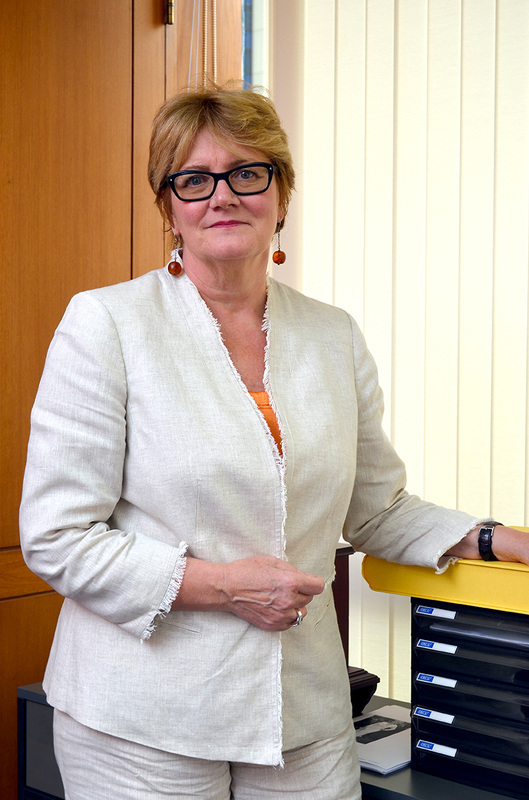
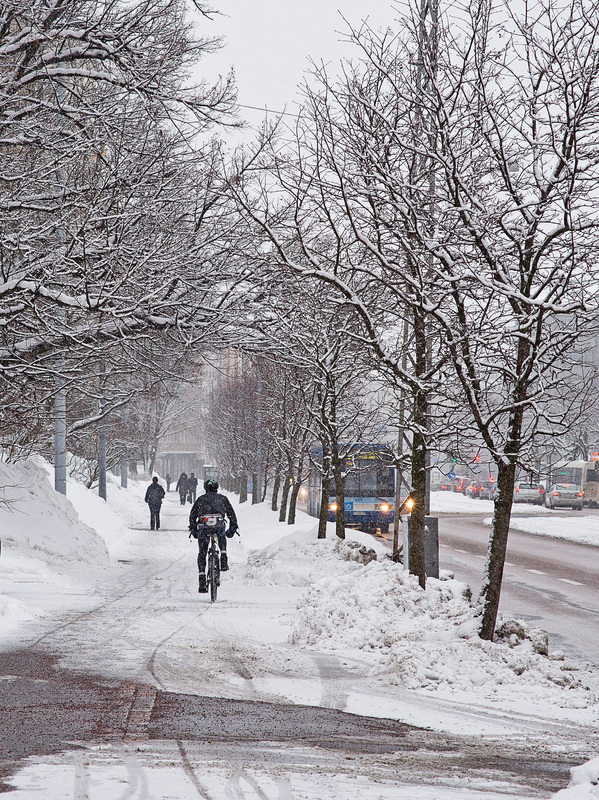

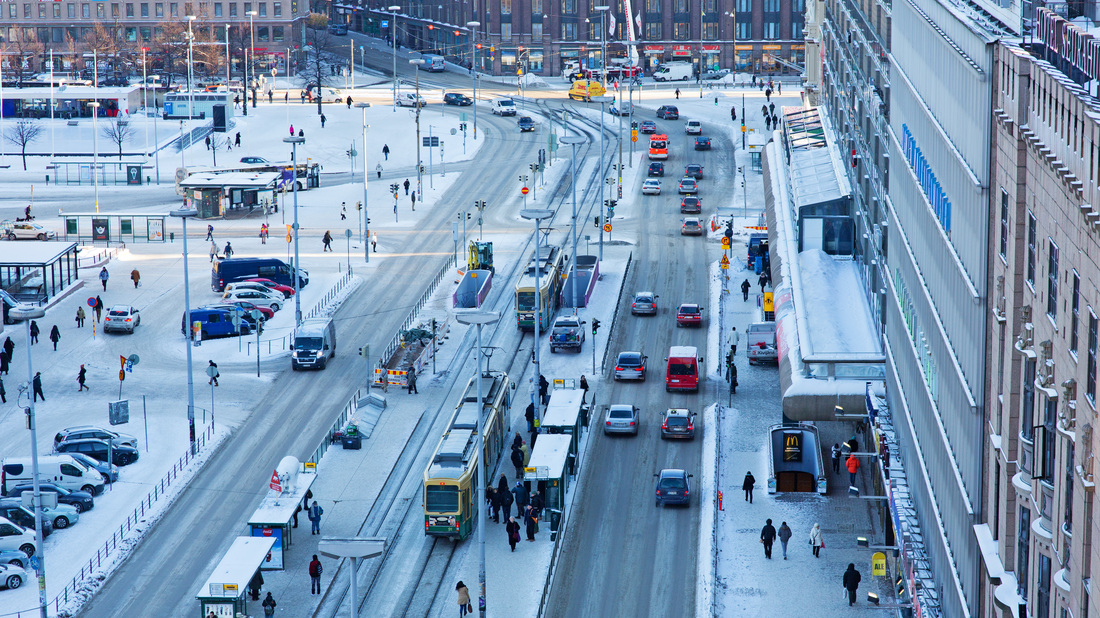
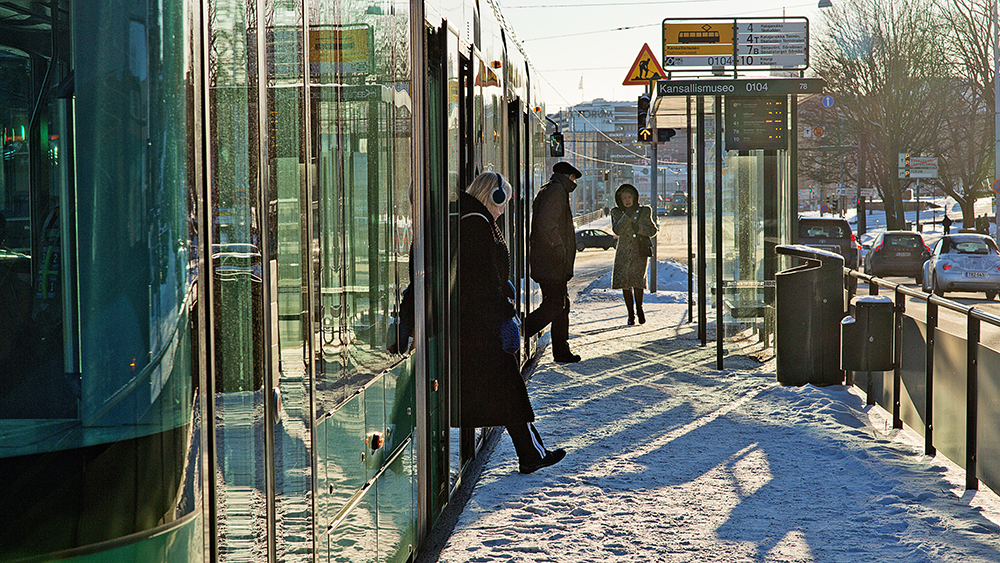
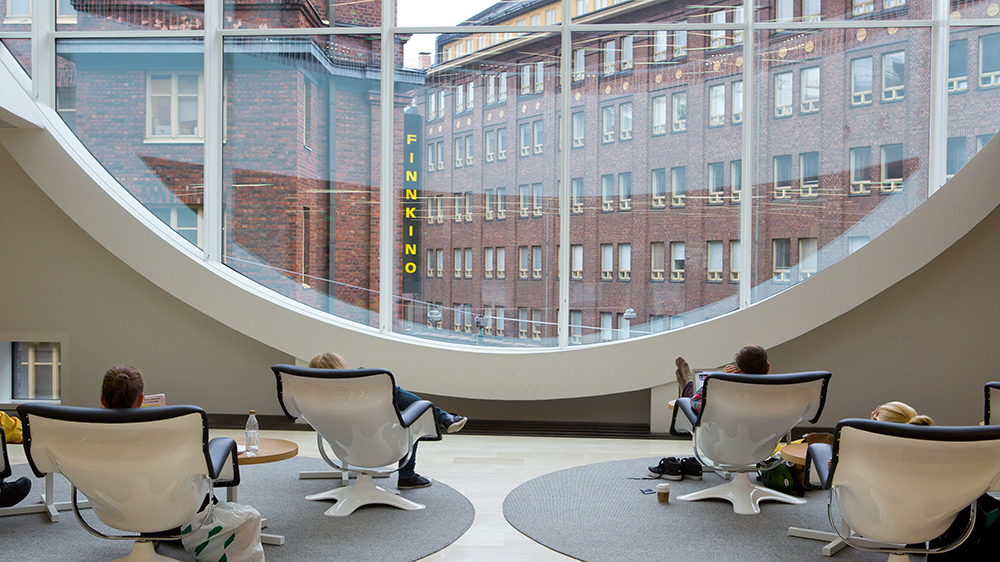
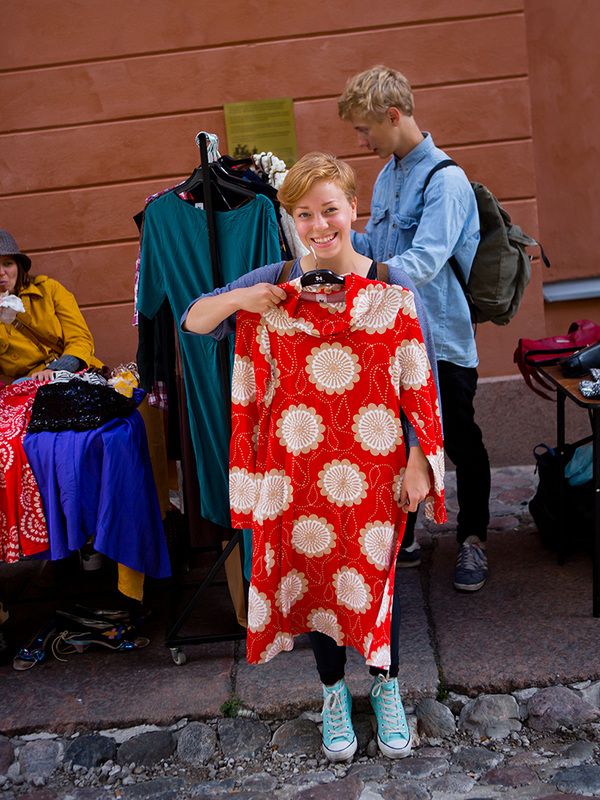
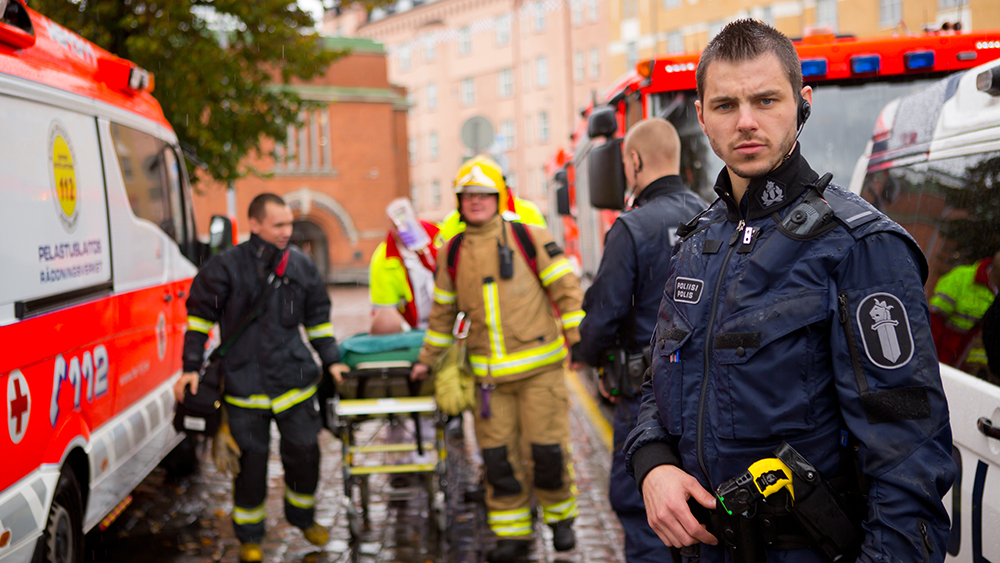

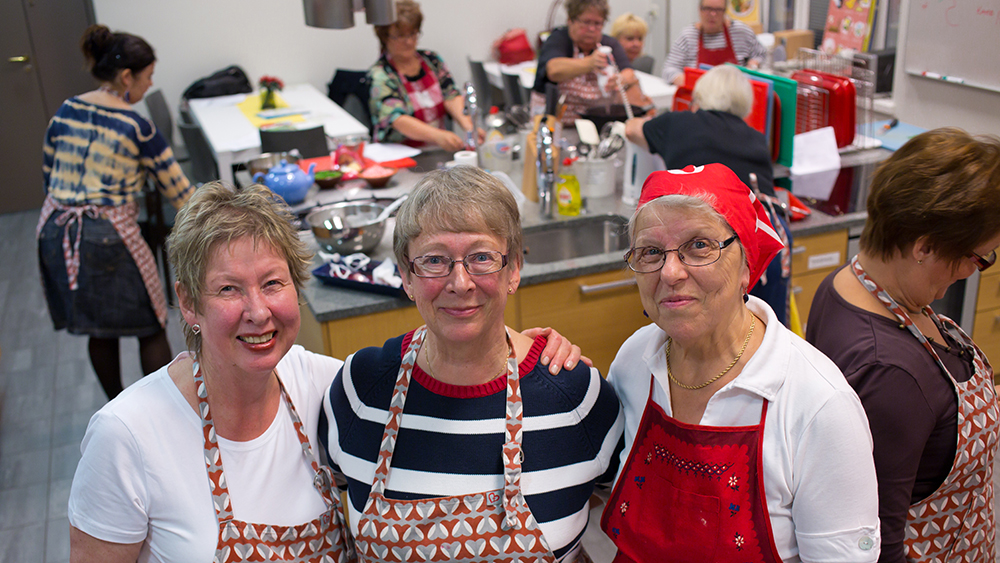
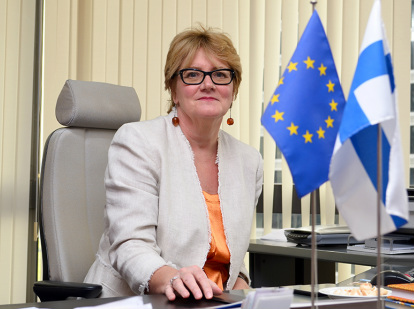
 RSS Feed
RSS Feed
















